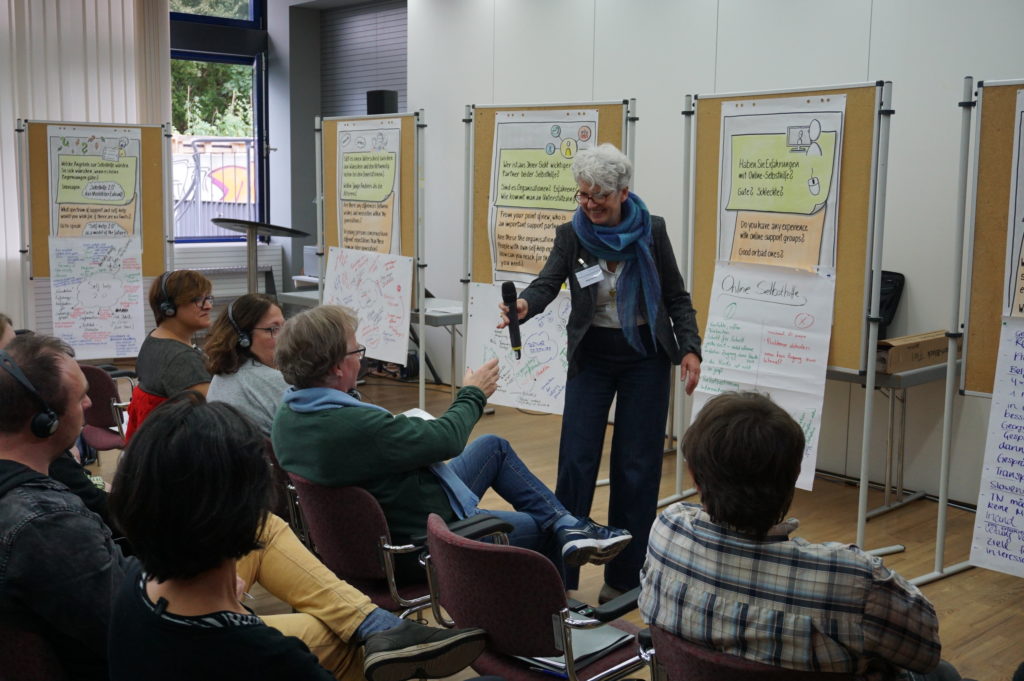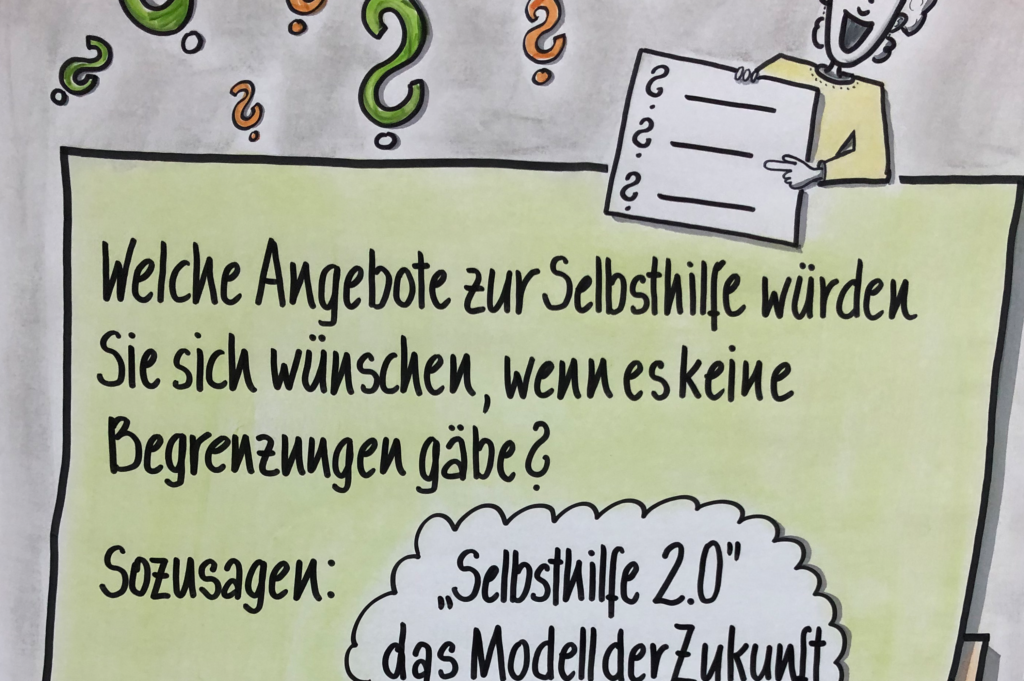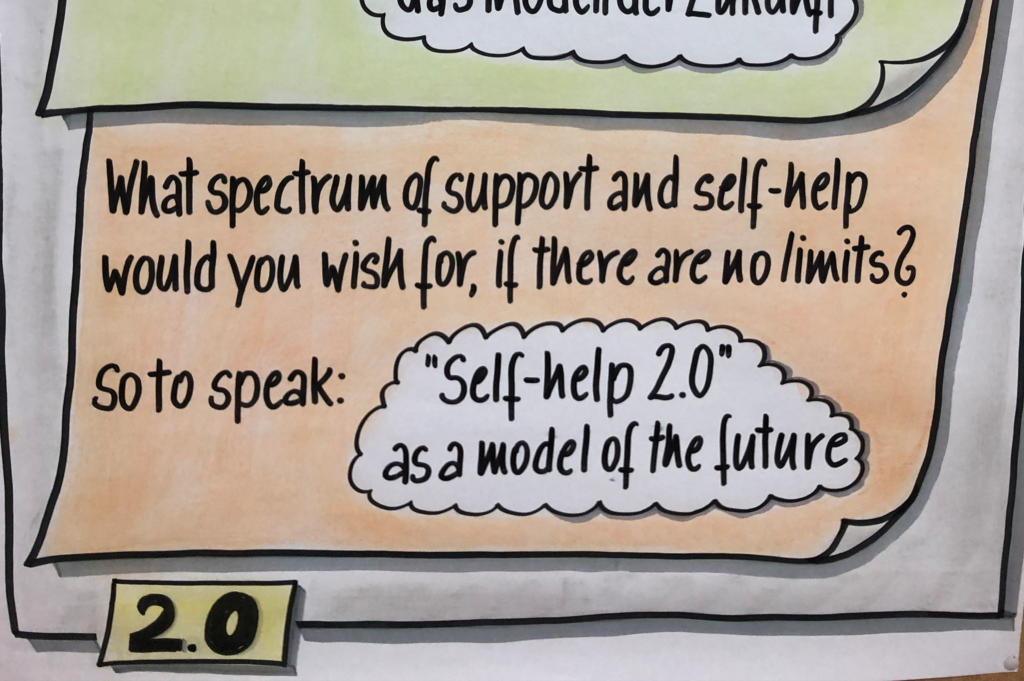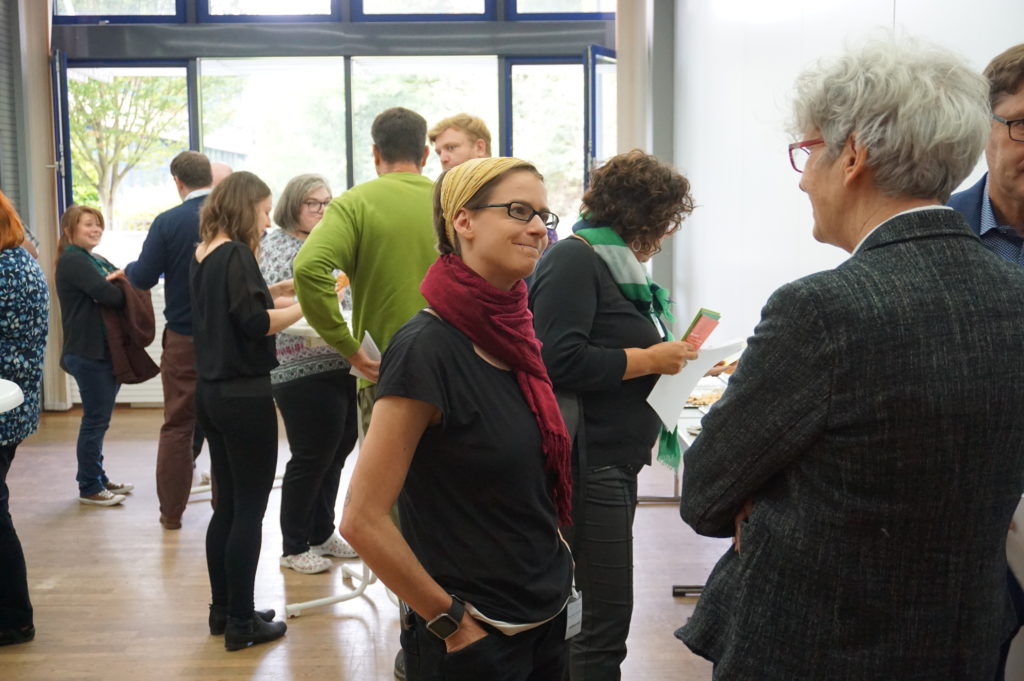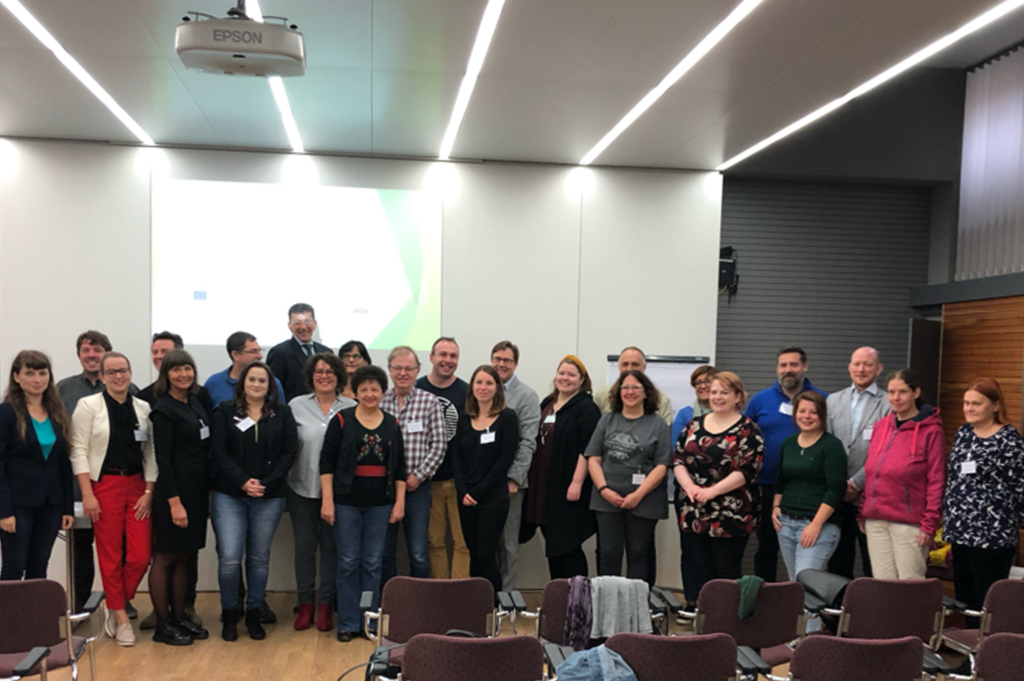New ways in self-help: a look back at the 2019 European Empowerment Seminar in Germany
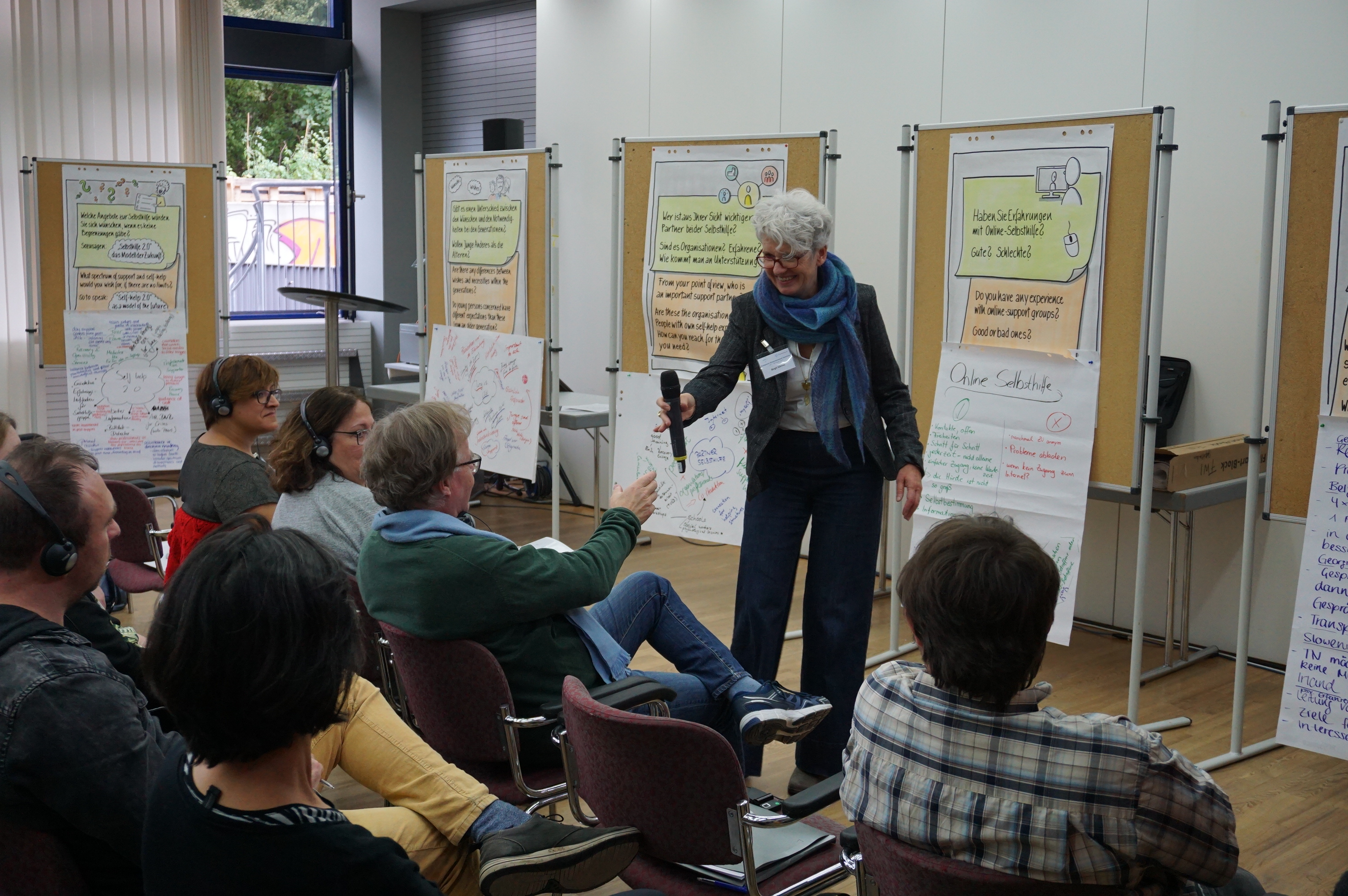
New ways in self-help
What is the scope of self-help? What chances and challenges do self-help interventions pose? And how can we develop self-help in the future? These and similar questions participants of the European Empowerment Seminar “Mental Health Europe creates Empowerment” discussed on 25-26 September 2019 in Landau / Pfalz, Germany. The seminar was hosted by Pfalzklinikum, Mental Health Europe’s German member, in the University of Landau nearby the Pfalzklinikum headquarters in South Palatinate.
The seminar brought together people with lived experience of mental-ill health, representing MHE member organisations from 12 European countries, as well as peers from the support and self-help community, such as EUTB Landau (complementing independent, participation consultancy) or the Landesnetzwerk Selbsthilfe Seelische Gesundheit – NetzG RLP (regional network self-help mental health Rhineland-Palatinate) and professionals.
During the seminar participants discussed various topics, and “Self-help 2.0. – what do you wish for self-help if anything was possible?” was one of them. Participants agreed that more peer support would be central in this; other suggestions included a more intensive involvement and adequate salary of EX-IN supporters – not only in the clinical environment. Additionally, many participants wished for a concept for “recovery houses” that are run by peers and are open 24/7. These houses should become a meeting point for peers not only in crises but also for regular exchanges in everyday life.
Discussions have also focused on the differences and similarities between younger and older peers, as well as potential and risks of online self-help. In addition to the exchange about how self-help is organised across Europe, common was the recognition that self-help is not absolute and that there is a need of good balance between peer support and professional support for people with lived experience.
Stigmatisation, even nowadays
The second day of the seminar focused on the outcomes of a study by the University of Gent, Belgium and testimonies from people with lived experience about the state of mental health services in Europe. Almost everyone agreed that there was a potential for improvement in the area of access. Stigma and discrimination were still widespread, even nowadays. Of particular interest was presentation of the online service MOOC (massive open online course) which conveys knowledge about mental health crises and discrimination from the users’ point of view. The seminar ended with a discussion about the role of the UN Convention on the Rights of Persons with Disabilities in ensuring the rights of people with mental health problems. Host and CEO of Pfalzklinikum Paul Bomke thanked the participants for coming and the Pfalzklinikum team for organising the seminar.
***
See more
- (ES) Retomar las riendas (1). SEMINARIO EUROPEO DE EMPODERAMIENTO 2019 – A recap of the seminar from MHE member in Spain
- (ES) SALUD MENTAL ESPAÑA asiste, en Alemania, al Seminario Anual de Empoderamiento de Mental Health Europe – A recap of the seminar from MHE member in Spain
- A recap of MHE national and European empowerment seminars in 2018
Stay connected
Get our latest news, personal stories, research articles, and job opportunities.
